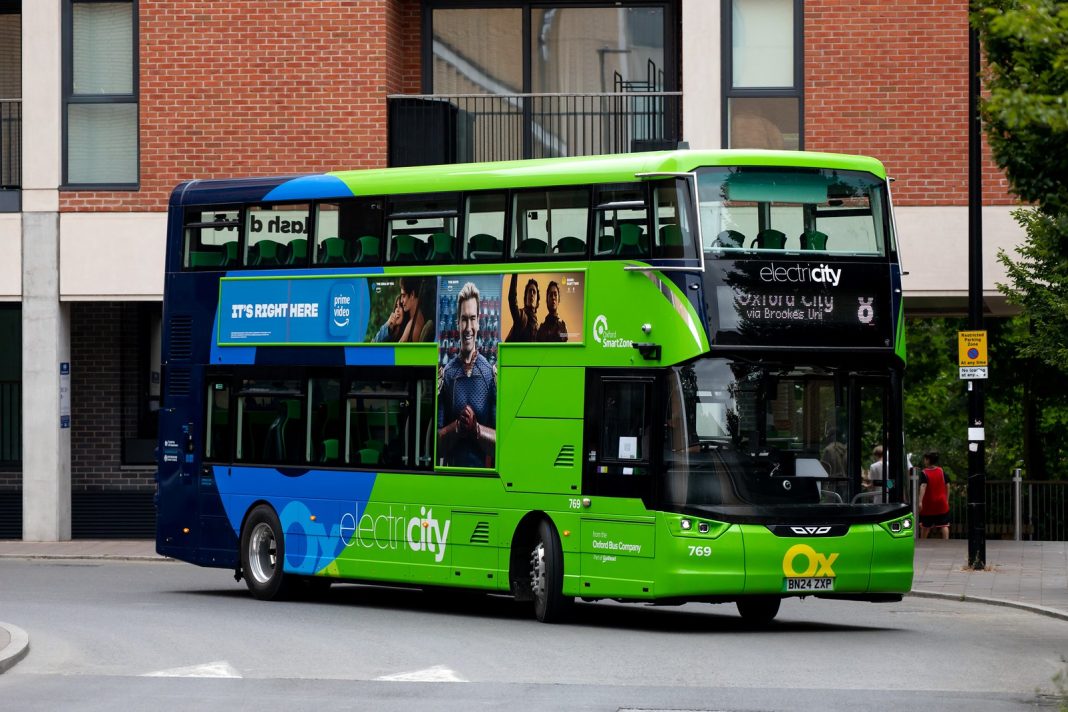Oxford is “well on its way to becoming the first all-electric city in the country,” Transport Secretary Louise Haigh said after visiting Oxford on Tuesday to meet public transport stakeholders in the region and speak about the challenges of transitioning to electric vehicles (EVs).
The same day, Go-Ahead Group, the parent company of the Oxford Bus Company, announced they would be investing £500m to build 1,200 electric buses, battery-powered with no emissions. The company has stated that it aims to cut its overall emissions by 75% by 2035, and to become fully net-zero by 2045.
On X, the Transport Secretary described the Go-Ahead Group’s decision to invest in the production of 1,200 electric buses as “a huge vote of confidence in our economy” because it would “support 2,500 jobs, clean up our air, and take us a step closer to our bus revolution”.
In January, the Oxford Bus Company, in partnership with Oxfordshire County Council and Stagecoach, launched an £82.5m project to deliver 159 new battery-powered buses. The Oxford Bus Company, who were responsible for delivering 104 of the planned 159 buses, completed the rollout earlier this month.
Emily Kerr, the Green Party councillor who has represented the St Mary’s ward of Oxford City Council since 2022, told Cherwell: “the shift to electric buses will make a huge difference to air quality. Unlike private cars, buses operate in the city centre where the high walls of colleges trap pollution and where there’s a high density of people breathing in the air.”
She identified the top of Headington Hill as one of the worst spots for pollution in the entire city.
Kerr continued: “Oxford is well suited to the switch to electric: we’ve got a strong charging network, plus initiatives like the ZEZ [zero emission zone] have meant that we’re already at the forefront of businesses switching to EVs.”
She anticipates that in the longer term, it is “definitely feasible” to see all-electric large vehicles but notes that “a rapid shift to 90% of vehicles [being electric] is much better than a slow shift to 100%.”
Nitrogen Oxide emissions in Oxford have significantly improved over the last few years, according to the city council’s 2023 air quality annual status report, but 68% of the current emissions are attributed to the transport sector.
The Oxford Bus Company is in agreement with Haigh and Kerr that the future of Oxford’s public transport is EVs. A spokesperson told Cherwell: “in Oxford it is feasible for the city fleet of buses to all be electric and this is something we achieved with our network recently.”
The company also stressed the other, non-environmental benefits to EVs, such as incentivising the use of public transport: “Offering modern, comfortable vehicles, a strong network and improved connectivity along with the current government £2 fare cap are all helping encourage more people to give buses a try.
“Oxford is a shining example of what can be achieved when funding and investment is made and key stakeholders work in partnership for the greater good.”


